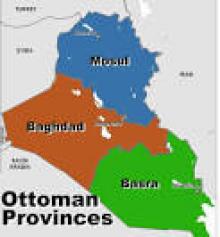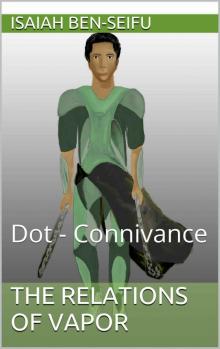- Home
- Неизвестный
Warbirds of Mars: Stories of the Fight! Page 16
Warbirds of Mars: Stories of the Fight! Read online
Page 16
He was never heard from again.
Those he left behind would often think of the farmboy and wonder if he found what he sought, the glory, the acclaim…the adventure. It pleased them to believe that he had.
THE BITTER EDGE
By Kane Gilmour
A cold wind ripped through the cherry tree branches, fluttering the light pink blossoms, and making the cloaked man uneasy. Still, he kept his crouched position on the low branch. He squatted on the thick bark, one hand clinging to the trunk, and the other holding the small knife he had found in a gardener’s shed in the next village. His cloak dipped lower than the branch, but not lower than the blossoms dancing in the breeze.
Through the fragrant flowers, the cloaked man watched the old Japanese man’s progress. Dressed in a traditional pleated black skirt and a crossed white blouse, the old man made his way along the dirt path. Soon the old man would be directly beneath the perch in the tree. The squatting form held his breath and waited, hoping he would not be detected. Behind him lay the forest, and the old man would likely travel on foot with his cane through the length of it, to the small pagoda on the other side of the wood. The forest was dense with pine and cherry blossom, but the path had been well traveled.
His grip on the bark tightened, as his lungs struggled to cope with the lack of oxygen, but he was afraid to make even the slightest noise, so he continued to hold his breath. The old man was clearly blind, and as a result, he might have excellent hearing.
You have no name, so you deserve no breath, he told himself.
The old man was nearly past the tree, when he grunted to himself. He took two more steps then stopped in the path, still facing the far side of the wood.
Damn.
The blind man took another two steps, then stopped again. When he spoke, it was in slow and measured Japanese—not as if he were speaking to a foreigner, but as if he were lecturing a pupil. His enunciation was perfect.
“If you were hoping to attack from your vantage in the trees, you missed your opportunity. I have passed the optimal point for you to leap.”
The cloaked man in the tree quickly debated with himself whether he should reply at all, confirming his presence. The old man could be guessing.
“Please. The cherry blossom is delightful at this time of year. Your stench is more akin to a garbage heap. I know you are there. If you do not plan to attack, why have you taken refuge in the tree?” The old man turned, smiled, and then tilted his head up to look directly at the crouched man, as if he were sighted after all.
The nameless man sighed in his tree. “I wish not to be seen.” His Japanese was sufficient for the old man to understand him, but his nature as a foreigner would be betrayed immediately by his inability to grasp the subtle complexities of the language.
“Please. Come down from your tree, and I promise I will not see you. I am blind, after all.” The man’s playful smile either showed him to be a friendly soul or a deadly actor.
The nameless man made his decision. He turned and nimbly leapt down to the path, a drop of perhaps ten feet, but his landing was nearly noiseless. His soft brown cloak fluttered out behind him. He stood slowly and faced the old man.
“You hide because you are Gaijin?” the bald old man asked. His face was kindly and deeply tanned, resembling a rich leather. His mustache stretched long below his chin on both sides of his mouth, but was vacant below his nose. An equally long tuft of white hair sprouted from the man’s chin.
“No, Ojiisama, I hide because I am disfigured.” The nameless man hung his head, as he used the formal term of respect for an elder. He knew enough of Japanese culture and enough about Japanese society from the time he had been in the islands to know that he would be shunned everywhere he went, because of his deformed face and unusual hands.
“For a Gaijin, you are very respectful, and have learned to speak my language very well. Come and walk with an old blind man. Your eyes clearly work well, and I may have use for them.” The man turned and began to walk down the path again, his gnarled and polished stick in hand.
The nameless man pulled the hood of his cloak up over his head and followed the kind old man.
As the deformed man had suspected, the old Japanese man lived in the first pagoda-like structure on the far edge of the wood. He had seen the building when hunting for deer the previous day. The woods sprawled for miles all around. He wondered how the man made due this far away from the village and with no sight.
“You encouraged me to attack you. What would you have done if I had been a threat?”
The old man smiled, but made no reply.
The inside of his home was a traditional Japanese setting. Thin mats covered the floors, and the walls were made from paper and wood, in simple but beautiful shapes and lines. The old man opened sliding doors that resembled panels on one wall, so that the side of the small home was completely open to the outdoors, with only the roof offering shelter from the elements.
“It is a very nice day, and the sun feels good on my face. Come help me make tea.” The old man led the way into a kitchen with surprisingly modern appliances—an icebox, a gas stove, and even electric lights. The cloaked man had not seen any electrical wires running to the home on his way in, and for that matter, he had seen precious few of them in this part of the empire. The Japanese man had not said anything to him about removing his shoes when they entered. The cloaked man wondered if the old blind man could somehow sense that he wore no shoes.
The old man paused and then turned to face him. “Perhaps, first you should bathe. I will handle the tea.”
The cloaked man exited the kitchen, and not knowing which way to go in the hallway, decided to simply explore. He turned left and checked the first door he came to. It led to a small room with a shrine. He backed out and slid the door closed. The next room was the bathroom, with a modern shower over a deep Japanese-style tub. Understanding that there would be water shortages with the Imperial army on the rampage through neighboring China, the cloaked man opted for the shower.
He shed his cloak, and the tattered clothes he wore underneath. He climbed into the deep tub and turned on the water. He was again surprised to discover hot water. The small pagoda-like home seemed old and traditional to the casual viewer, but it had all the modernity inside for which one could hope. As the steamy water washed away layers of dirt from his body, the man looked down at himself. His skin was covered in scars from the beatings he had received and from the torture done to him. His feet were heavily covered in calluses after so long without shoes. If he didn’t look at his hands, he could believe he was completely human.
But the hands gave it away. He held them up to examine them in the water. Three long thick digits on each hand, rounded at the end like a human finger, but at least four times the girth of a normal man’s finger. One digit was shorter, clearly more of a thumb-like appendage. He was grateful that finger was opposable—grateful for the small favor, he thought.
Of course, gloves could hide his hands to some degree, but there was no hiding his face. Anyone who glimpsed it would immediately recognize him for what he was. Something not human.
He scrubbed himself clean, and then climbed from the tub, noticing that the old man had slipped into the room and left a pile of clothing for him.
He is more silent than I can be, he thought. He wondered how that could be so. He had always assumed his ability to be silent was from his non-human heritage. He was stronger than most men. Faster and more durable. He healed from injury quicker, and he could move with stealth akin to that of a cat. All natural abilities for him, but all things he would easily give up if his hands and face could be normal instead.
He dressed in the skirt and layered jacket the old man had left for him. At the end, he stood in front of the room’s full-length mirror, and looked at the clothing. It somehow suited him, but it left only his hands and his face exposed—the two parts he would prefer to see the least. He decided he would have to wash the cloak next, so he could don
it again. He was about to set to that task, when the old man called to him.
“The tea is ready. Please come.”
Not wanting to be rude, and knowing the man could not see his grisly visage, he left the steam of the bathroom.
The nameless man sat on his knees on the floor opposite the old man at a low table. He had seen a formal tea ceremony performed before, from a distance, but he expected no such treatment here. Even though things were not set out formally—the tray the man used was a spotted plastic thing, the teapot itself was an elaborate cloisonné affair with gold and turquoise inlaid on the sides and lid. The cups were tiny, and their sides had matching cloisonné. Their ceramic underneath was so thin, he was afraid to grasp one with his meaty fingers. When he did, he was delighted to see the bottom of the cup was plain white ceramic, but a design of a geisha girl had somehow been molded into the bottom of the cup. He briefly held it up to allow sunlight to shine through the thin bottom of ceramic, so he could see the image more clearly. It made him smile. He set the cup down delicately, before the old man brought the pot over to pour.
He sat patiently and silently, waiting for the old man to speak. Instead, the old man poured the tea into both of the cups effortlessly, despite being blind. He did not insert his fingers in the cups to determine when they were full of liquid. He just appeared to know, and stopped pouring at precisely the correct instant.
At last, the cups were full, and the old man lifted his cup in his hands. The nameless man took his own delicate cup.
“You smell much better now.”
The nameless man smiled again.
“You never did tell me your name. What shall I call you?”
The smile evaporated. “I am sorry, Ojiisama. I…I do not have a name.”
The old man’s kind face turned suddenly concerned. “No name? At all? How is that possible?”
The nameless man was quiet for a few seconds. “I was not given one at birth. I…did not have a conventional childhood.”
The old man seemed to consider this information. Instead of asking about the unusual upbringing, the man changed direction. “Perhaps, we should find a name for you now, then.”
“I wish to be worthy of such a name first.”
The old man drank his tea silently.
The breeze blew cool wind into the open home, and the nameless man enjoyed the flowery scents on the air. He breathed in slowly, savoring every breath. His life had been difficult, full of scorn and battles. After escaping from a Europe still feeling the ravages of the Great War, he had journeyed into the Soviet Union, hoping that if he could not find tolerance there, he might at least lose himself in the gigantic mass of the state. But cruelty and hardship had found him once more. He eventually found himself in a prison camp in Siberia. He escaped when the Japanese invaded the area on one of their frequent forays into the lands north of their islands. He was immediately fascinated by the reserve and skill of the Japanese soldiers. Their facility with swords was amazing to watch. He had long since learned to keep to the shadows because of his deformities. So he stowed away on a ship that took him to the Japanese isles. He had hoped to find a home in Japan. But rising nationalism and militarism was turning the Empire of Japan into another Germany. Plus, once he had covertly observed enough about the culture of the place, he understood that he would never be accepted in their world. Now he kept to the shadows, hunted the Emperor’s wildlife in the forests, and hoped to one day decide where next he might journey. For now, he simply existed. That existence was necessary, but it certainly did not feel worthy of a name.
“I believe I understand,” the old man said. He took another sip of tea. “Today we will rest, enjoy the Spring air, and drink tea. Tomorrow we will begin.”
“Begin? Begin what, Ojiisama?”
“Developing your worth.”
The old man woke him early the next day. He wore a white top again, similar to the one he had worn the previous day, and his pleated traditional skirt, or Hakama, was a deep shade of burgundy. The nameless man followed the blind man out onto a porch, into the Spring sunshine for a breakfast of rice and fish. As they ate, the old man asked him to tell about his past and how he had come to Japan.
The nameless stranger told the older man that he was the genetic offspring of a human woman raped by something that visited Earth from another world. He explained to the old man that he looked essentially human, but for his hands, which each had only three thick digits, and his face, which was visibly not human. The nameless man described his upbringing in Germany at the hands of some of these otherworldly creatures who were collaborating with the government, and who were experimenting with breeding. He had been too human looking for their tastes, and they kept him only to be a slave. He described his escape one night and how he had lived on the streets of Germany after the Great War. He found no acceptance in the German cities, though, his face too horribly abnormal for acceptance by even the most ostracized of citizens. He described his flight into the Soviet Union, where he hoped that even if he did not find acceptance in the brotherly ways of the Communists, he might at least find solitude in the vast open spaces of Russia. He told how he had been captured, beaten, and imprisoned yet again, only to escape once more, heading ever eastward, and how he had wound up in captivity for a third time in Siberia. He described his ultimate escape when the Japanese made one of their occasional forays into Russian territory, looking to expand their lands and settle long-standing disputes over the islands north of Hokkaido.
The nameless man spoke of how he had been fascinated by the bearing and culture of these invading warriors, and of how he had been enthralled by their use of not only guns, but swords, and even their own bodies, in battle. He told of how he watched them fight, and of the analogies he drew between their abilities and his own abnormal hereditary speed and agility.
He told the blind man that he had stowed away on a freight ship heading back to Japan, and had evaded detection on the journey. But once in Japan, he soon learned from the shadows how challenging the language would be, and how difficult it would be to fit into Japanese society. Disheartened, and with no more drive to move on searching for a people that might welcome, or at least tolerate, his hideous countenance, he had watched the Japanese from the alleys and the fringes of society for years, before making his way farther into the forests and mountains deep in the interior of the country. He lived now by hunting and fishing, he said, each day completing those tasks necessary for survival, and attempting to cultivate a harmony with nature that he could not manage with mankind.
The blind man nodded throughout the story, seeming to understand the nameless man’s plight. He did not ask any questions during the telling of the story. His face showed no emotion. When the nameless man’s tale was finished, the old man finally spoke.
“You understand that I am blind. While I cannot see with my eyes, I can use the other senses I have to perhaps a greater degree than the average man. I hear the woodpecker searching for grubs on that evergreen tree.” The Japanese man pointed off in the distance, and when the nameless man focused on the direction in which the old man pointed, he could finally hear the bird tapping as well. “I smell the blossoms on the breeze. I taste the fine intricacies of the fish we have just consumed.”
The elderly man paused.
“My fingertips can tell me many things that eyes cannot. May I touch your features, so that I might understand your visage?”
The nameless man hesitated. This old blind man was the first human being to show him genuine kindness. He was worried that once the man understood how terrible his face truly was, he would no longer be kind. Still, he had observed Japanese society for long enough to know that denying the request would be perceived as rude, particularly in light of the man’s kindness so far.
He leaned across the table, rising up partially on his knees to do so. “I have stretched across the table for your hands, Ojiisama.”
The old man gently reached out his fingertips, gliding his hands left and
right, starting at the top of the nameless man’s head and working down to the chin. His face revealed no expression as his digits learned. The process took perhaps two minutes, but for the nameless man, they felt like a lifetime of apprehension and anxiety.
When the old man’s fingers reached the chin, he removed his hands and placed them softly in his own lap. The nameless man sat back down again.
“I understand,” the old man said. He spoke no more as they finished their meal.
After breakfast, they moved into the back of the home, to a room that appeared empty, save for a small Shinto shrine. The nameless man recalled having seen the shrine the previous day.
“My name is Hiroshi Honma,” the old man told him. “You have told me of yourself, and you have shown me your true self. I will now show you what I do and who I am. If you decide that you would like to do and be something similar, then you will become my pupil. If you do, you will call me teacher—or Sensei. If you choose to follow my path, you will develop the worth you seek, Nameless, and one day, you will feel worthy of bearing a true name.”
The old man moved silently to the shrine. There was a rectangular block of stone that must have weighed more than any two men could lift. It sat about two feet away from the wall, and it looked like granite, but Nameless was not sure what it was. On top of the block was a long silk cloth, stretched lengthwise along the gray stone, and on it were several small stone urns—one of which was Chinese jade, and the others were of a cream-colored polished stone. A small bowl of sand was on the left, and next to it were several incense sticks. At the right edge of the stone was a small bonsai tree in a red lacquered rectangular pot. In front of the shrine, on the floor, was a plush purple velvet pillow, large enough for Honma to kneel on it.

 The Bolivian Diary
The Bolivian Diary Caffeine Blues_ Wake Up to the Hidden Dangers of America's #1 Drug ( PDFDrive )
Caffeine Blues_ Wake Up to the Hidden Dangers of America's #1 Drug ( PDFDrive ) The Empty House
The Empty House T Thorn Coyle Evolutionary Witchcraft (pdf)
T Thorn Coyle Evolutionary Witchcraft (pdf)![K J Emrick & Kathryn De Winter - [Moonlight Bay Psychic Mystery 01-06] - A Friend in; on the Rocks; Feature Presentation; Manor of; by Chocolate Cake; A-Maze-Ing Death (retail) (epub) Read online](http://freenovelread.comhttps://picture.efrem.net/img/nienyi/k_j_emrick_and_kathryn_de_winter_-_moonlight_bay_psychic_of_by_chocolate_cake_a-maze-ing_death_retail_epub_preview.jpg) K J Emrick & Kathryn De Winter - [Moonlight Bay Psychic Mystery 01-06] - A Friend in; on the Rocks; Feature Presentation; Manor of; by Chocolate Cake; A-Maze-Ing Death (retail) (epub)
K J Emrick & Kathryn De Winter - [Moonlight Bay Psychic Mystery 01-06] - A Friend in; on the Rocks; Feature Presentation; Manor of; by Chocolate Cake; A-Maze-Ing Death (retail) (epub) Next Day of the Condor
Next Day of the Condor Onyx
Onyx The Woodcock Game: An Italian Mystery Novel
The Woodcock Game: An Italian Mystery Novel Granta 122: Betrayal (Granta: The Magazine of New Writing)
Granta 122: Betrayal (Granta: The Magazine of New Writing) One More Dream
One More Dream Cosa Nostra by Emma Nichols) 16656409 (z-lib.org) (1)-compressed
Cosa Nostra by Emma Nichols) 16656409 (z-lib.org) (1)-compressed Cowboy by J. M. Snyder
Cowboy by J. M. Snyder Colossus
Colossus Star Trek - DS9 011 - Devil In The Sky
Star Trek - DS9 011 - Devil In The Sky Fright Mare-Women Write Horror
Fright Mare-Women Write Horror The Future Is Japanese
The Future Is Japanese In the Witching Hour
In the Witching Hour Mammoth Books presents Wang's Carpets
Mammoth Books presents Wang's Carpets The Cradle King: The Life of James VI and I, the First Monarch of a United Great Britain
The Cradle King: The Life of James VI and I, the First Monarch of a United Great Britain Stalking Moon
Stalking Moon Hostage To The Devil
Hostage To The Devil![Harris, Daisy - Mere Passion [Ocean Shifters 2] (Siren Publishing Classic) Read online](http://i1.bookreadfree.com/i/03/23/harris_daisy_-_mere_passion_ocean_shifters_2_siren_publishing_classic_preview.jpg) Harris, Daisy - Mere Passion [Ocean Shifters 2] (Siren Publishing Classic)
Harris, Daisy - Mere Passion [Ocean Shifters 2] (Siren Publishing Classic) Day, Sunny - Hot in Space (Siren Publishing Ménage and More)
Day, Sunny - Hot in Space (Siren Publishing Ménage and More) Five Books Of The Lives, Heroic Deeds And Sayings Of Gargantua And His Son Pantagruel
Five Books Of The Lives, Heroic Deeds And Sayings Of Gargantua And His Son Pantagruel I Never Thought I'd See You Again: A Novelists Inc. Anthology
I Never Thought I'd See You Again: A Novelists Inc. Anthology Billion dollar baby bargain.txt
Billion dollar baby bargain.txt![Chenery, Marisa - Turquoise Eye of Horus [Egyptian Shifters 1] (Siren Publishing Classic) Read online](http://i1.bookreadfree.com/i1/03/26/chenery_marisa_-_turquoise_eye_of_horus_egyptian_shifters_1_siren_publishing_classic_preview.jpg) Chenery, Marisa - Turquoise Eye of Horus [Egyptian Shifters 1] (Siren Publishing Classic)
Chenery, Marisa - Turquoise Eye of Horus [Egyptian Shifters 1] (Siren Publishing Classic) Cat Magic
Cat Magic Star Trek - DS9 - Warped
Star Trek - DS9 - Warped Catherine Coulter - FBI 1 The Cove
Catherine Coulter - FBI 1 The Cove Miranda Lee -The Blackmailed Bridegroom
Miranda Lee -The Blackmailed Bridegroom The Seashell Anthology of Great Poetry
The Seashell Anthology of Great Poetry Dragon Moon
Dragon Moon The Social Costs of Pornography: A Collection of Papers
The Social Costs of Pornography: A Collection of Papers That Is Not Dead
That Is Not Dead Best New Horror: Volume 25 (Mammoth Book of Best New Horror)
Best New Horror: Volume 25 (Mammoth Book of Best New Horror) This Christmas by J. M. Snyder
This Christmas by J. M. Snyder Faerie Cake Dead
Faerie Cake Dead CS-Dante's Twins
CS-Dante's Twins EFD1: Starship Goodwords (EFD Anthology Series from Carrick Publishing)
EFD1: Starship Goodwords (EFD Anthology Series from Carrick Publishing) Echo Burning by Lee Child
Echo Burning by Lee Child The Spinetinglers Anthology 2010
The Spinetinglers Anthology 2010 Wild Hearts
Wild Hearts Violet Winspear - Sinner ...
Violet Winspear - Sinner ... Broken Angels
Broken Angels FearNoEvil
FearNoEvil![Santiago, Lara - Range War Bride [Tasty Treats 11] (Siren Publishing PolyAmour) Read online](http://i1.bookreadfree.com/i1/03/30/santiago_lara_-_range_war_bride_tasty_treats_11_siren_publishing_polyamour_preview.jpg) Santiago, Lara - Range War Bride [Tasty Treats 11] (Siren Publishing PolyAmour)
Santiago, Lara - Range War Bride [Tasty Treats 11] (Siren Publishing PolyAmour) 8 Great Hebrew Short Novels
8 Great Hebrew Short Novels This Is How You Die: Stories of the Inscrutable, Infallible, Inescapable Machine of Death
This Is How You Die: Stories of the Inscrutable, Infallible, Inescapable Machine of Death The Steampowered Globe
The Steampowered Globe While We Wait by J. M. Snyder
While We Wait by J. M. Snyder Iron Tongue cr-4
Iron Tongue cr-4![Stieg Larsson [Millennium 02] The Girl Who Played with Fire v5.0 (LIT) Read online](http://i1.bookreadfree.com/i1/03/31/stieg_larsson_millennium_02_the_girl_who_played_with_fire_v5_0_lit_preview.jpg) Stieg Larsson [Millennium 02] The Girl Who Played with Fire v5.0 (LIT)
Stieg Larsson [Millennium 02] The Girl Who Played with Fire v5.0 (LIT) The Spinetinglers Anthology 2009
The Spinetinglers Anthology 2009 Bowles, Jan - Branded by the Texas Rancher (Siren Publishing Classic)
Bowles, Jan - Branded by the Texas Rancher (Siren Publishing Classic) Brown, Berengaria - Vivienne's Vacation (Siren Publishing Ménage and More)
Brown, Berengaria - Vivienne's Vacation (Siren Publishing Ménage and More) Inheritors
Inheritors Arthur Conan Doyle: A Life in Letters
Arthur Conan Doyle: A Life in Letters Cunningham, Pat - Coyote Moon (BookStrand Publishing Romance)
Cunningham, Pat - Coyote Moon (BookStrand Publishing Romance) Static Line
Static Line Ghost Mysteries & Sassy Witches (Cozy Mystery Multi-Novel Anthology)
Ghost Mysteries & Sassy Witches (Cozy Mystery Multi-Novel Anthology) Elizabeth Neff Walker - Puppy Love
Elizabeth Neff Walker - Puppy Love Ghosts in the Machine
Ghosts in the Machine Theater of the Crime (Alan Stewart and Vera Deward Murder Mysteries Book 6)
Theater of the Crime (Alan Stewart and Vera Deward Murder Mysteries Book 6) Red Satin Lips, Book One (The Surrender Series)
Red Satin Lips, Book One (The Surrender Series) Catherine Coulter - FBI 4 The Edge
Catherine Coulter - FBI 4 The Edge StateoftheUnion
StateoftheUnion Fantastic Women: 18 Tales of the Surreal and the Sublime from Tin House
Fantastic Women: 18 Tales of the Surreal and the Sublime from Tin House Sara Wood-Expectant Mistress original
Sara Wood-Expectant Mistress original Nine-to-Five Fantasies: Tales of Sex on the Job
Nine-to-Five Fantasies: Tales of Sex on the Job Granta 133
Granta 133 Dream Quest
Dream Quest The Warlock in Spite of Himself wisoh-2
The Warlock in Spite of Himself wisoh-2 Glenn, Stormy - Mating Heat (Siren Publishing Ménage Amour)
Glenn, Stormy - Mating Heat (Siren Publishing Ménage Amour) Davis, Lexie - Toys from Santa (Siren Publishing Classic)
Davis, Lexie - Toys from Santa (Siren Publishing Classic) Once Dead, Twice Shy
Once Dead, Twice Shy McSweeney's Enchanted Chamber of Astonishing Stories
McSweeney's Enchanted Chamber of Astonishing Stories Zombies: Shambling Through the Ages
Zombies: Shambling Through the Ages Baghdad Without a Map
Baghdad Without a Map Banshee Cries (the walker papers)
Banshee Cries (the walker papers) Fire and Fog cr-5
Fire and Fog cr-5 The Twelve Hot Days of Christmas
The Twelve Hot Days of Christmas The Relations of Vapor: Dot - Connivance
The Relations of Vapor: Dot - Connivance![Harris, Daisy - Mere Temptation [Ocean Shifters 1] (Siren Publishing Classic) Read online](http://i1.bookreadfree.com/i2/04/11/harris_daisy_-_mere_temptation_ocean_shifters_1_siren_publishing_classic_preview.jpg) Harris, Daisy - Mere Temptation [Ocean Shifters 1] (Siren Publishing Classic)
Harris, Daisy - Mere Temptation [Ocean Shifters 1] (Siren Publishing Classic) World of Mazes cr-3
World of Mazes cr-3 Mistaken Identity (A Jules Poiret Mystery Book 26)
Mistaken Identity (A Jules Poiret Mystery Book 26) Star Trek - DS9 - Fall of Terok Nor
Star Trek - DS9 - Fall of Terok Nor Not Like I'm Jealous or Anything: The Jealousy Book (Ruby Oliver)
Not Like I'm Jealous or Anything: The Jealousy Book (Ruby Oliver) Skaterboy by J. M. Snyder
Skaterboy by J. M. Snyder The Sorcerer_s Skull cr-2
The Sorcerer_s Skull cr-2 The Columbia Anthology of Modern Japanese Literature (Modern Asian Literature Series)
The Columbia Anthology of Modern Japanese Literature (Modern Asian Literature Series) New Erotica 5
New Erotica 5 Catherine Coulter - FBI 3 The Target
Catherine Coulter - FBI 3 The Target Best Sex Writing 2013: The State of Today's Sexual Culture
Best Sex Writing 2013: The State of Today's Sexual Culture Factoring Humanity
Factoring Humanity Huia Short Stories 11
Huia Short Stories 11 Call of the Wilds
Call of the Wilds Great English Short Stories (Dover Thrift Editions)
Great English Short Stories (Dover Thrift Editions)![Ramagos, Tonya - Logan's Lessons [Sunset Cowboys 2] (Siren Publishing Classic) Read online](http://i1.bookreadfree.com/i2/04/10/ramagos_tonya_-_logans_lessons_sunset_cowboys_2_siren_publishing_classic_preview.jpg) Ramagos, Tonya - Logan's Lessons [Sunset Cowboys 2] (Siren Publishing Classic)
Ramagos, Tonya - Logan's Lessons [Sunset Cowboys 2] (Siren Publishing Classic)![Morgan, Nicole - Sweet Redemption [Sweet Awakenings 1] (Siren Publishing Allure) Read online](http://i1.bookreadfree.com/i2/04/10/morgan_nicole_-_sweet_redemption_sweet_awakenings_1_siren_publishing_allure_preview.jpg) Morgan, Nicole - Sweet Redemption [Sweet Awakenings 1] (Siren Publishing Allure)
Morgan, Nicole - Sweet Redemption [Sweet Awakenings 1] (Siren Publishing Allure) Warbirds of Mars: Stories of the Fight!
Warbirds of Mars: Stories of the Fight! Original Version of Edited Godwin Stories(lit)
Original Version of Edited Godwin Stories(lit) Where The Hell is Boulevard?
Where The Hell is Boulevard?![Chemical [se]X Read online](http://i1.bookreadfree.com/i2/04/13/chemical_sex_preview.jpg) Chemical [se]X
Chemical [se]X Allison Brennan - See No Evil
Allison Brennan - See No Evil Sherlock Holmes Mystery Magazine #1
Sherlock Holmes Mystery Magazine #1